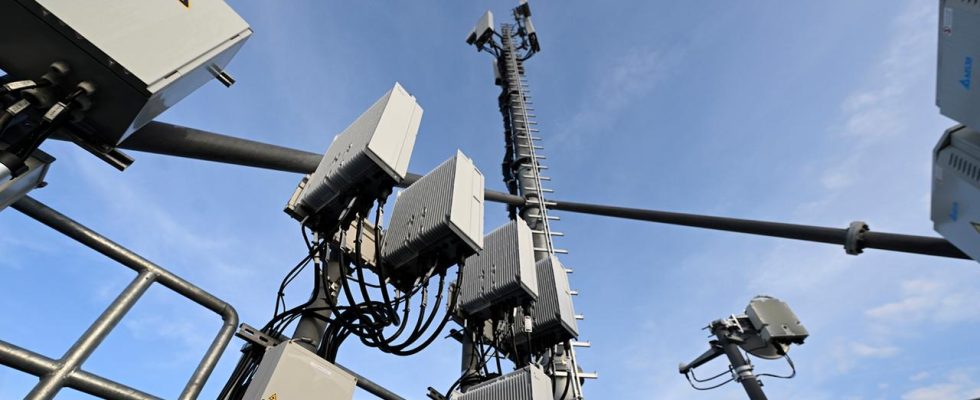The Federal Network Agency is against the renewed auction of mobile frequencies. To this end, the network operators should be given requirements for network expansion in order to improve supply in rural areas.
The Federal Network Agency advocates foregoing further auctions of mobile frequencies. Instead, the existing network operators Deutsche Telekom, Vodafone and Telefónica (O2) will be allowed to continue using certain frequencies subject to network expansion conditions, as the regulatory authority announced today.
To this end, the usage rights, which expire at the end of 2025, should be extended by five years for relatively low fees, said authority boss Klaus Müller when presenting possible new framework conditions. The last frequency auction in 2019 brought in around 6.6 billion euros for the state.
It’s not enough for four networks
The reason for the decision is that the spectrum available would probably not have been enough for four good networks. So far the frequencies are used by three operators. The newcomer 1&1 would also take part in an auction for use from 2026.
Accordingly, four companies would bid, one of which would come away empty-handed – this would then have very bad cards on the market because its network quality would be low. The extension does not give 1&1 its own extra spectrum. Since the company is allowed to use the Vodafone network, this is not too problematic from the authorities’ point of view.
“We want to put better mobile phone coverage in rural areas at the center of our requirements,” explained Müller. With the extension of the usage rights now being considered, companies will in return be given planning and investment security.
What providers must ensure
According to the planned requirements, mobile phone operators should provide at least 98 percent of households in sparsely populated areas in every federal state and all federal highways with a transmission rate of at least 100 Mbit per second by the end of 2028. A value of 50 Mbit is required for state and state roads as well as the inland waterways of the federal core network.
It would not be the first time that usage rights for network frequencies have been extended. This had already happened once in 2005. In 2000, 2010, 2015 and 2019, however, there were auctions of different frequency ranges. The Federal Network Agency’s proposal is now going through a consultation process in which market participants can have their say.
Network operators welcome the decision
The affected companies now have until November 6th to comment in detail. A decision should be made at the beginning of 2024. In an initial reaction, the companies welcomed the decision.
“Instead of having to invest billions of dollars in license rights as in the past, the network operators can now reasonably hope to be able to invest directly in further network expansion and further improve mobile communications coverage in this country,” said Markus Haas, head of Telefonica Germany. This is a change of direction and breakthrough for mobile communications in Germany.
Deutsche Telekom also described the network agency’s proposal as fundamentally correct. “But it’s the details that matter. If, at the same time, regulation is further tightened in favor of service providers, it will harm network expansion.”
Share prices of telecommunications companies are rising sharply
The Federal Network Agency’s proposal was well received on the stock market – it brought some companies significant price gains. The shares of 1&1 particularly stood out with an increase of a good eleven percent at times. In their slipstream, the titles of the parent company United Internet also gained up to 7.4 percent.
Telefonica Deutschland achieved a maximum share price increase of almost five percent. Deutsche Telekom’s shares made up for their initial losses and were trading almost unchanged. In London, Vodafone shares gained 2.6 percent.

